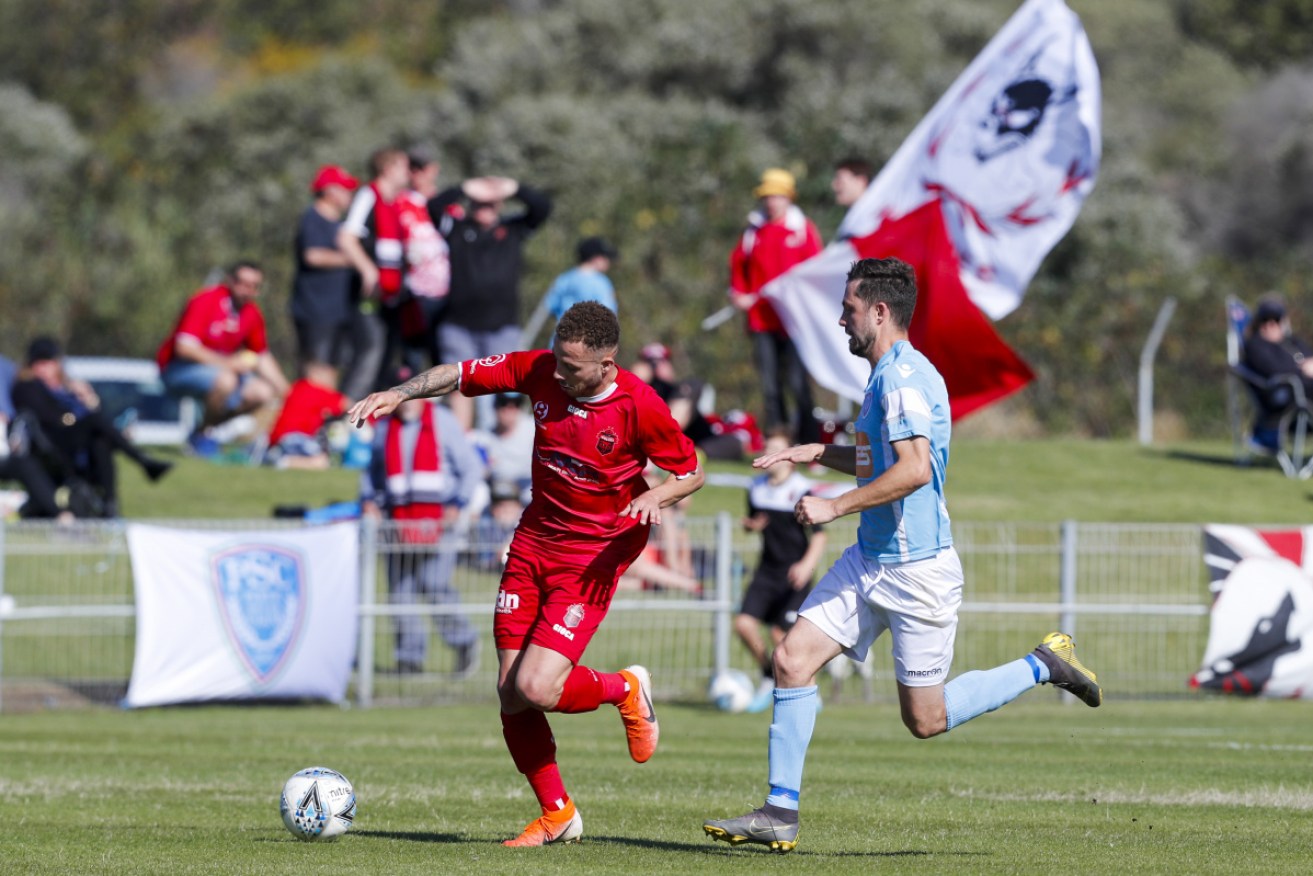A different ball game: FFA’s belated decision on coronavirus is the right move

The FFA has decreed all football below the A-League is suspended until mid-April. Photo: Getty
After initially appearing set to attempt to soldier on under a modified protocol, Football Federation Australia (FFA) on Tuesday evening announced that all football below the professional game would be suspended until April 14 in response to the spread of COVID-19.
It’s the right decision.
FFA CEO James Johnson and Head of Leagues Greg O’Rourke had initially fronted a press conference on Monday, announcing that the W-League Grand Final, A-League season and grassroots and National Premier League football would continue under modified conditions.
As well as observing social distancing and increased hygiene measures at venues, a call was made for only “essential participants” to attend footballing events.
But swift feedback from the footballing community and a rapidly shifting landscape led to a policy rethink.
The suspension applies to all sanctioned matches and competitions, including @NPLAustralia, @FFACup, youth and grassroots football (including #MiniRoos and futsal) as well as training and associated football related activities. https://t.co/NRpMUXzfBP
— Football Federation Australia (@FFA) March 17, 2020
“We want to highlight that this feedback has been critical in our decision today,” Johnson acknowledged during a teleconference with journalists on Tuesday evening.
Of course, the veracity of continuing professional football games remains a highly debatable point, and individual players’ social media activity shows that there remains confusion and apprehension around playing.
But through Professional Footballers Australia, Australia’s elite players are represented by a strong union with a direct voice at the table – one they will hopefully use to its fullest extent to protect themselves.
“I think we need to look at them [grassroots and professional football] in different ways,” Johnson said.
As an aside, even if the professional game continues, the health and wellbeing of the security guards, broadcasters, stadium officials and other peripheral staff whose attendance will also be required at these games must not be forgotten.
In a labour market of increasing casualisation and uncertainty, these individuals may not be able to turn down paid work even if they’re apprehensive of the risks.
On a grassroots level, however, the sheer weight of numbers involved and a lack of resources to properly enforce safety measures mean that suspending play is a necessary step to help Australian football do its bit to flatten the COVID-19 curve.
“The Association of Australian Football Clubs welcomes the decision by the FFA and member federations to temporarily suspend grassroots and NPL football,” Nick Galatas, chairman of the Association of Australian Football Clubs – a coalition of state-based National Premier League (NPL) clubs – told The New Daily.
“With COVID-19 presenting an enormous strain on the community, the move gives comfort to our members’ players, staff and volunteers and gives participants a clear direction.
“Players now aren’t required to make the decision between playing and potentially risking their health or that of their families, friends and schoolmates away from their club and not playing and feeling like they’re letting their club and teammates down.”
Recent data comparing South Korea – which had been undertaking widespread testing – and Italy – which had been reserving testing for individuals that had shown symptoms – has shown that young people are still quite capable of contracting and spreading the disease even if they show no symptoms of the virus.
Here’s something that’s absolutely terrifying: a comparison of the age distributions of Covid-19 cases in Italy, where they are only testing people who show symptoms, and S. Korea, which has broad testing. A whole lot of 20-29yos out there who feel just fine but are v contagious. pic.twitter.com/BU96h3VKUc
— Mark Byrne (@markwby) March 14, 2020
Young people make up the vast majority of individuals taking part in organised football at all levels.
A superficially healthy footballer unknowingly carrying COVID-19 can not only pass it on to their teammates but also pass it on their mothers and fathers, sons and daughters, sisters and brothers, their friends and co-workers, their teachers, coaches, employees and more.
What happens when an asymptomatic footballer goes home to a house they share with their elderly grandmother?
What happens when they go to training and interact with a coach with diabetes?
What happens when they bump into deemed essential at certain events who has a weakened immune system from cancer treatment?
Australian football frequently likes to tout its status as among the most popular participation sports in the country, with 1,957,552 Australians involved in the game, according to the FFA’s latest survey.
But such figures are not just for press releases and presentations to governments seeking funding.
Every individual that makes up that number is owed a duty of care by the FFA not only to themselves but also the intricate web of connections that every single one of them carries.
“As a good and responsible citizen, we recognise that a sport with 1.9 million participants, the largest sport in the country, we need to have a significant role, and in our view a more significant role than other sports, in slowing the spread of the virus and, in turn, saving lives,” Johnson explained.
And that’s what this is about. Flattening the curve, reducing the risks and saving lives.








